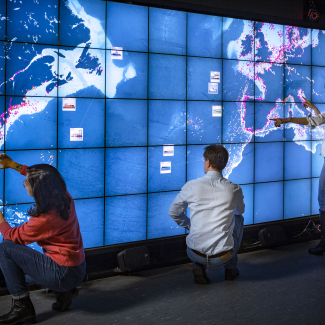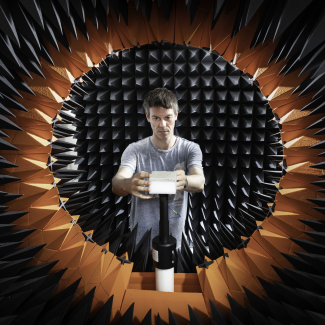
Missions
The mission of the National Centre for Scientific Research (CNRS) is to leverage all fields of sciences to tackle current global challenges.
What the CNRS does
Research that covers all angles
The CNRS has over 80 years experience of basic research, exploring living creatures, space, materials and human societies and can leverage all fields of science to understand current global challenges in all their complexity, in conjunction with organisations in the field.
From innovation to impact
The CNRS encourages and supports the application of research results to transform them into concrete and long-lasting social and technological innovations that benefit both companies and society.
Knowledge sharing
The CNRS is a strong advocate of a knowledge-focused society, and an open science that is deeply rooted in its era. It promotes the wide circulation of knowledge and scientific culture, and supports decision makers to develop public policy.
Access the decree governing the organization and operation of the CNRS (in French)
Creating a dialogue between all the sciences
A multidisciplinary scope
Research and innovation at the CNRS is intrinsically multidisciplinary and applied to all areas of scientific knowledge. Its research fields cover:
- Biology
- Chemistry
- Ecology and the Environment
- Engineering
- Mathematics
- Nuclei and Particles
- Physics
- Information Technology
- Humanities & Social Sciences
- Earth and Space
An interdisciplinary approach
The CNRS is the only research organisation in France that brings together all the scientific disciplines under its aegis. Its strength is having specialists working in complex areas, who understand their subjects in the greatest depth. Interdisciplinarity means bringing these experts together to work on a joint project. The vision underpinning this approach is to explore new scientific questions, which requires cooperation between disciplines, and to set out global strategies to tackle the most pressing challenges to science. These are by definition horizontal and interdisciplinary, as is the case with climate change, health and the environment, and educational inequality. This is why the CNRS encourages the sciences to come together in a dialogue that also includes stakeholders from wider society.
Ethical and responsible practice
To perform its role, the CNRS follows its own national charter on ethics for research professions which clearly sets out the criteria for a rigorous scientific method with integrity. This can be applied in particular when working in national and international partnerships.
Photo credit: © Cyril FRESILLON / SETE / CNRS Images

